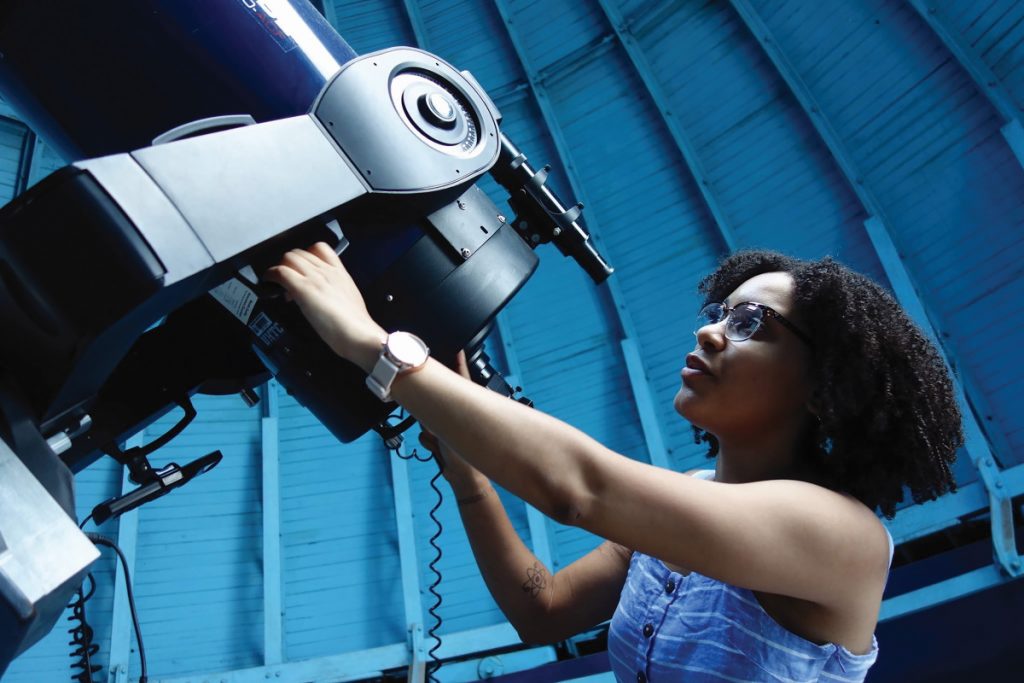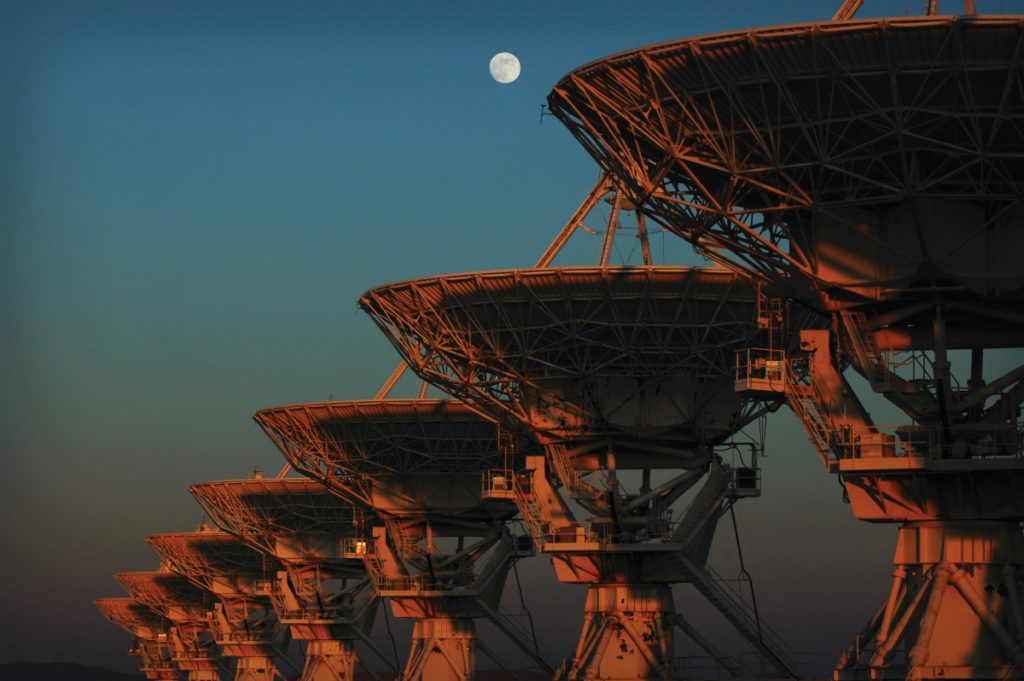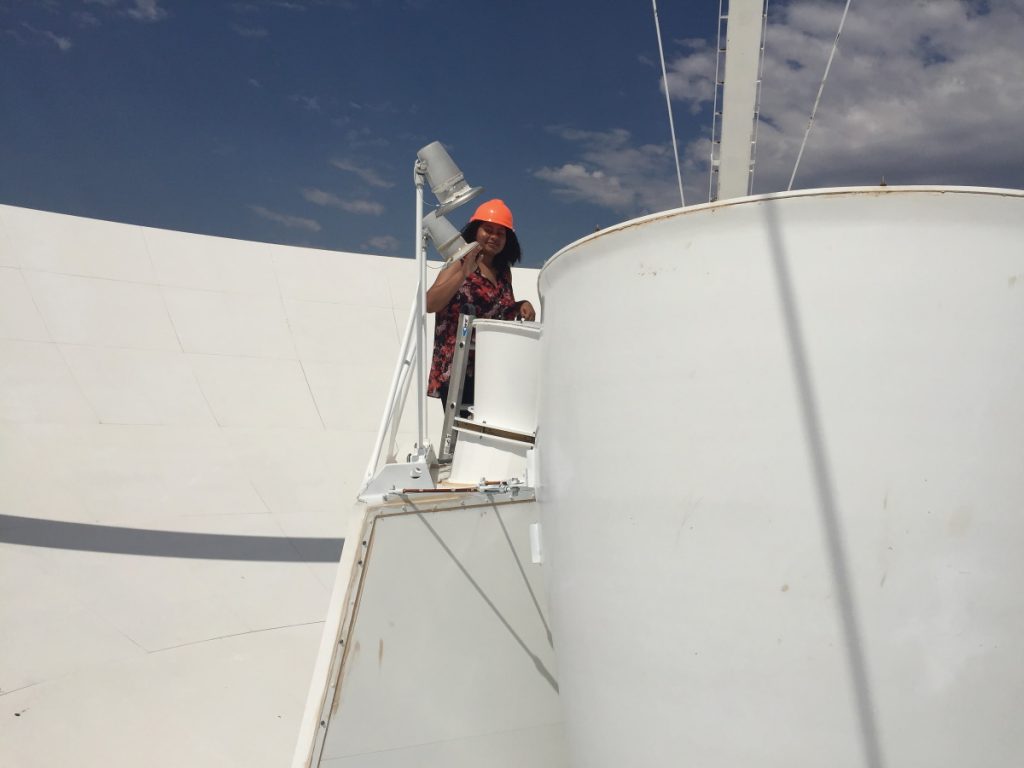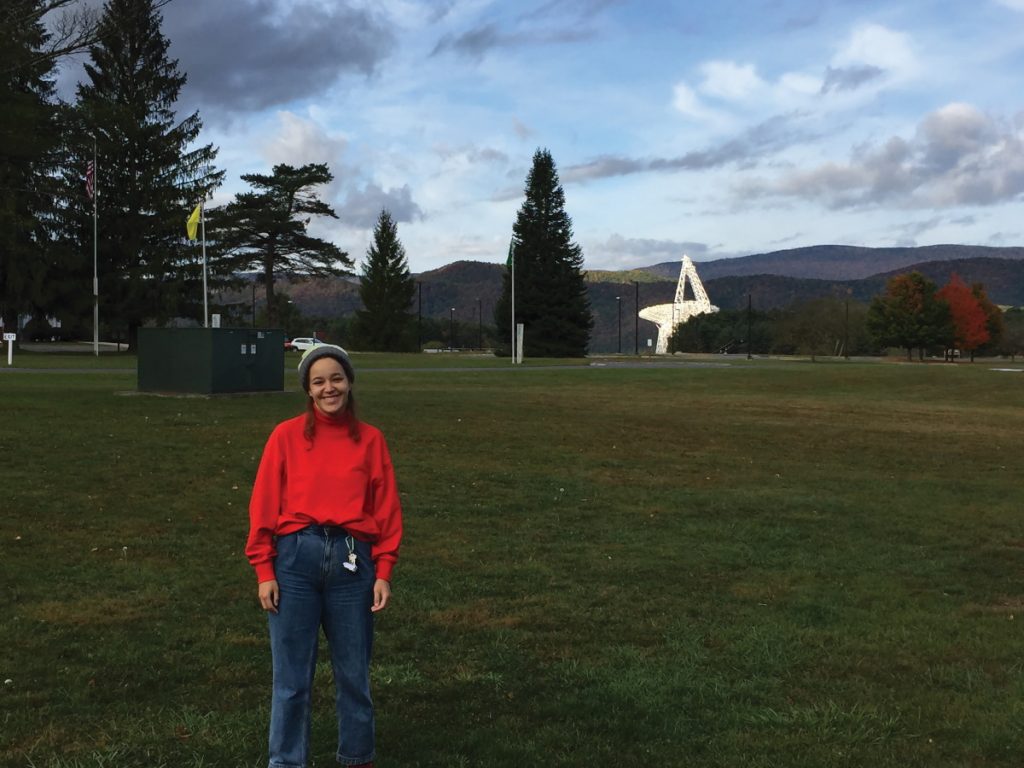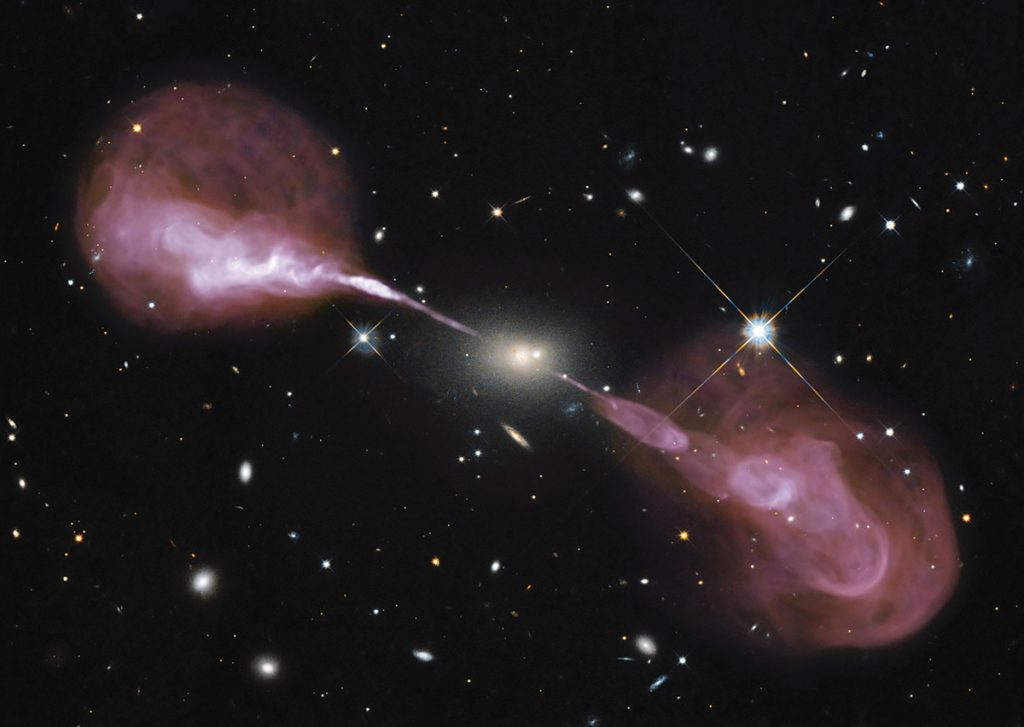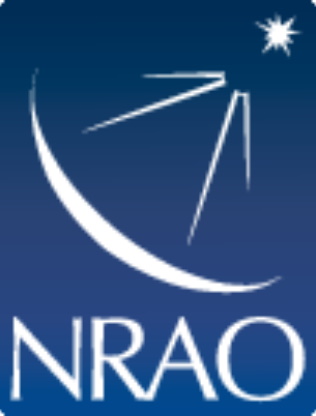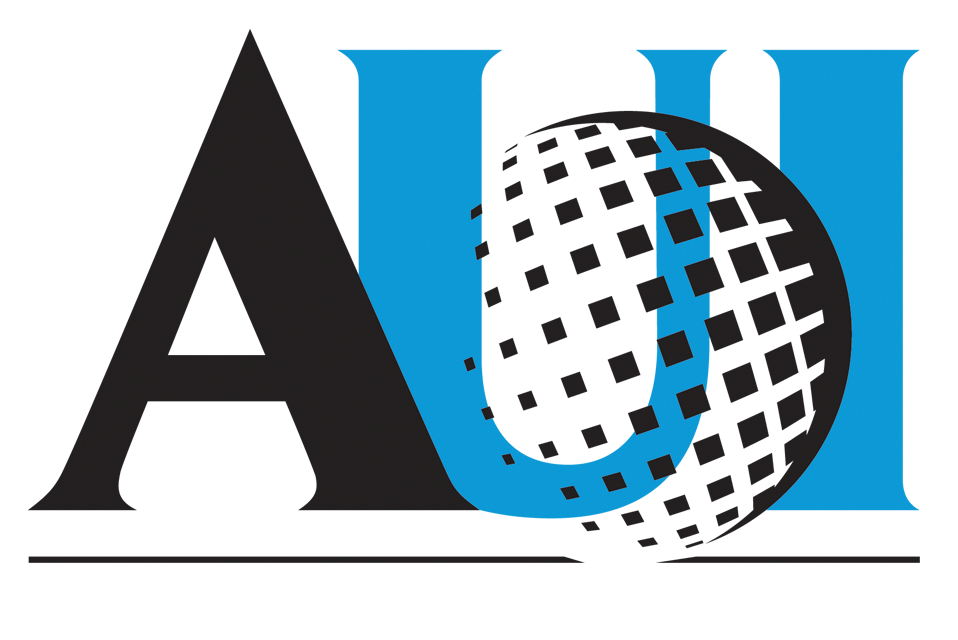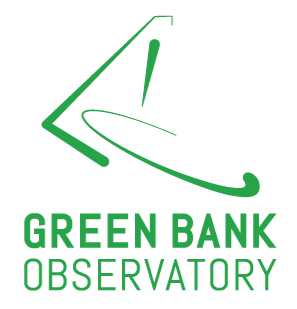“Good mentors don’t just try to recreate you in their image; they give you the tools necessary to achieve your own goals”
Access to STEM careers can be a challenge to students from underrepresented backgrounds and the National Astronomy Consortium (NAC) aims to change that by providing a wealth of support and opportunities for aspiring scientists, or others interested in pursuing careers in STEM. Three former NAC students tell us how the programme has launched their star-studded careers
It is unfortunate and yet true that a diverse range of groups remain underrepresented in science, technology, engineering and maths. These underrepresented groups include people of colour, women, sexual orientation and gender identity minorities, the economically disadvantaged and students who are the first in their family to go to college. The reasons why these groups are underrepresented are often complex, which makes it a challenging issue to tackle. The National Astronomy Consortium (NAC) aims to address this challenge, however, by providing pathways to academic careers for students from less advantaged (or less privileged) backgrounds.
The NAC provides cutting-edge astronomy research opportunities to students for whom access might otherwise be challenging. The NAC was formed in 2013 as a partnership between the National Radio Astronomy Observatory (NRAO) and the National Society of Black Physicists (NSBP), along with a number of Historically Black Colleges and Universities (HBCUs) and major research universities and observatories.
TACKLING BARRIERS TO ENTRY
While there are higher education Minority- Serving Institutions (MSIs) across the USA, many find it challenging to provide undergraduate students with significant research opportunities. For example, few MSIs run astronomy programmes, so there are limited opportunities for underrepresented students to become involved in astronomy research. This means that when these students apply to graduate schools, a lack of research experience can make their applications less competitive than those of students from more advantaged backgrounds regardless of their academic ability.
There can also be a number of financial barriers to entering graduate school. In the US, exam fees alongside individual graduate school application fees, can limit prospects for many students. Even after graduating, networking and opportunities to present their research can be out of reach for those without the means to travel to venues. The NAC aims to tackle these issues through financial support for application processes, as well as travel grants to graduates of the programme.
LONG-TERM MENTORING
The NAC partners its students with leading scientists, engineers, technicians and other professionals. These academics act as mentors, able to give one-to-one advice and guidance to their students. This guidance does not just cover their scientific projects but also about future careers. Many mentors will have followed similar education pathways to the students they support, so are able to anticipate, and help students prepare for, potential challenges or obstacles.
The NAC is one of the first access programmes to include long-term mentoring as a priority goal. There is robust evidence that mentoring has strong positive effects on the retention of underrepresented minority students within STEM. NAC emphasises the importance of establishing a long-term mentoring relationship with students, ensuring they have access to good advice at every stage of their academic career.
There is a lot of flexibility in how the mentoring process progresses over time at NAC. Many students stay with the same project and mentor for several years, while others move to new projects and mentors. These choices depend on several factors, principally the students’ interests and aspirations.
RECRUITMENT
To be a successful academic from any background, but especially from an underrepresented minority background, students need to be resilient. This is the ability to not give up in the face of adversity or setbacks, and to meet and overcome challenges. Resiliency is an important character trait for NAC candidates. This quality is assessed through questions and conversations with applicants.
Students can apply to the NAC through the NRAO Student Application portal by selecting ‘NAC’ as a programme of interest. Applications are reviewed by mentors at each of NAC’s research sites, and discussions are held about what might be the best fit for each student, depending upon their interests and stage in their academic career. The NAC believes in closing the representation gap, to ensure that people from any background have the same opportunities within science.
MEET THREE STUDENTS WHO ARE EMBARKING ON A CAREER IN ASTRONOMY
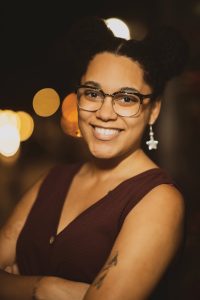 MOIYA McTIER
MOIYA McTIER
PhD in Astronomy
Columbia University, USA
My PhD involves investigating how the structure and motion of the Milky Way affect populations of planets throughout the Galaxy. Some people might say my research fits into the search for a Galactic Habitable Zone – a place in the Galaxy where life is most likely to form.
After graduating, I’m planning to work full-time as a science communicator, kind of like Bill Nye. The knowledge and skills I’ve gained in my PhD program will be vital, but I think the biggest thing I’ll gain from my PhD program is credibility.
Whenever I talk about science, I use stories and humour about my work and my life to humanise myself for my audience. I also don’t just talk about scientific results; I talk about how the science gets done. I think these two approaches to science communication go a long way in bridging the trust gap between academics and the public.
I was a NAC student at the National Radio Astronomy Observatory in the summer of 2014. The NAC’s goal has always been to help students from under-represented groups thrive. The programme provides financial support for attending conferences and workshops and have connected me to influential people in both astronomy and science communication. This is all in addition to the professional development that I gained.
The best thing I gained from my time in the NAC was a lifetime support network. Six years after my internship, I still consider other NAC students some of my best friends. We offer each other advice, encouragement, and shoulders to cry on. I wouldn’t be where I am today without them.
Mentorship in the NAC comes in a lot of different forms, and it goes beyond research advice. When I was a NAC student in 2014, I started developing an interest in science communication and public outreach. Since then, my NAC mentors have introduced me to outreach officers, and offered advice and support as I stumbled to find my career path.
Good mentors don’t just try to recreate you in their image; they give you the tools necessary to achieve your own goals. I’d say that the NAC is the first time I was able to find that kind of good mentorship. I wouldn’t be where I am today without the NAC.
MOIYA’S TOP TIPS:
1. Don’t compare yourself to other people. Move at the pace that’s right for you!
2. Focus on learning skills, not facts. Developing strong problem-solving abilities will make you more widely employable than memorising equations.
3. Think hard about what your motivation is. Then, when things get tough, you can remind yourself that you’re doing it for a reason.
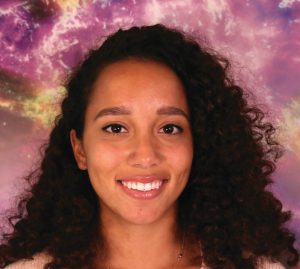 SINCLAIRE MANNING
SINCLAIRE MANNING
PhD in Astronomy
University of Texas at Austin, USA
I am interested in how galaxies form and evolve. For my PhD project I am specifically working to understand a phase of galaxy evolution that occurs about a billion years after the Big Bang, at which point galaxies are rapidly forming hundreds to thousands of stars per year.
Virtually everyone you meet will have looked up at the night sky and questioned what is out there. In this sense, astronomy might be one of the most universal and relatable fields in science. One of the things that I find so great about astronomy is how my field can engage with people from any background.
Ultimately my goal is to be a professional astronomer. My PhD will be an essential qualification to achieve this goal.
I first learned of the NAC my sophomore year in college at Howard University. I saw a poster for a seminar being given by an astronomer from the National Radio Astronomy Observatory and it mentioned summer research opportunities for undergraduates. I attended the seminar, introduced myself to the speaker after their talk, and went on to apply for the position. I did my first summer research at NRAO in 2012 and became a member of the first NAC cohort in 2013.
The NAC has helped me immensely over the years as both a cohort member and now a peer mentor. Without the NAC, I would not have obtained the research experience needed to apply to graduate school. I was able to work with some wonderful astronomers who were (and still are) invested in not only my success, but also my well-being.
There are so many things I didn’t know as a younger student, just because I didn’t know what questions to ask. A good mentor will use their experience, expertise, and established network to open as many doors as possible for their mentee.
The NAC has helped with everything from graduate admission fees to conference travel. This support has allowed me to create a broad network as I work to establish myself as a professional astronomer, which I can then go back and share with the newer cohorts. This constant feedback from members is one of the strongest aspects of the NAC in my opinion.
It wasn’t until my sophomore year of college that I decided I wanted to be an astronomer. There is a misleading narrative that scientists have only ever wanted to be scientists, when, in reality, there are many reasons why people end up in STEM.
SINCLAIRE’S TOP TIP:
It’s important to be a well-rounded person. Find other things outside of science that bring you joy and fulfilment. Your identity as a person is more than just a scientist and those other interests will allow you to not only have a unique perspective and approach that sets you apart, but also keep you grounded and happier overall.
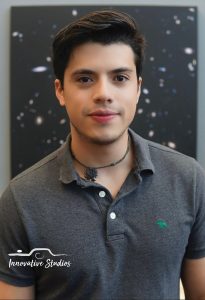 ANTONIO J PORRAS
ANTONIO J PORRAS
PhD in Astrophysics
Vanderbilt University, USA
My research involves the study of galaxies as they evolve throughout time. I am interested in understanding why some galaxies stop forming stars.
After my PhD, I would like to pursue a postdoctoral fellowship. This will allow me to obtain more experience in research, while becoming an independent researcher.
I am part of Alpha Cen, a non-profit organisation that seeks science representation in Central American and the Caribbean. We have about twenty-five members. We want to show the world that our countries have highly capable scientists.
I became aware of the NAC when I was a senior undergraduate student doing research in applied mathematics. I saw the NAC opportunity on the National Radio Astronomy Observatory website and decided to apply.
The NAC provided me with a space to do research, share my failures and successes, while obtaining professional development training. I had never been told how to write a CV or a letter of motivation. The NAC has done a great job at providing continuous mentorship, community support, and access to resources.
Mentors are important because they help you find your position as a scientist, point you out to the right connections, highlight and promote your work. I believe that guiding and encouraging students at an early stage can make a huge impact.
As a NAC student, I was part of a cohort of students who had shared similar obstacles as me. I was able to recognise how their intersectional identities and mine were affected while navigating academia. There, I made the decision to do astrophysics for graduate school.
I am from San José, Costa Rica. I moved to the US in 2010, learned English, got my undergraduate degree in mathematics, and a master’s in physics. Now, I am a PhD student in astrophysics. When I started school, I wanted to prove that I could succeed despite the obstacles unique to my intersectional identity.
When I was at high school I had never met a scientist in my life, let alone an astrophysicist. I heard the word ‘universe’ for the first time during my philosophy class in my senior year of high school. Since then, I became interested in finding the reason behind our existence.
ANTONIO’S TOP TIPS:
1. Find a mentor that believes in you.
2. It is OK to fail. I failed a calculus class, and later majored in mathematics. Sometimes you need to fail to get over the feeling of failing.
3. Take initiative. Look for opportunities, seek what you need and pursue it.
Reference
https://doi.org/10.33424/FUTURUM53
National Radio Astronomy Observatory Karl G. Jansky Very Large Array (VLA). The VLA is one of the most versatile astronomical instruments in the world, studying the Sun, Milky Way, pulsars, distant galaxies, and beyond.
© Dr Brian R Kent (NSF/AUI/NRAO)
Angelina Gallego, a graduate on the NAC programme, is on one of the Very Large Array antennas.
Jasmin Washington, another graduate student on the NAC programme, is pictured with the Green Bank Observatory telescope.
Artist impression of a double sunset on a ‘Tatooine’ exoplanet forming in a circumbinary disk that is misaligned with the orbits of its binary stars.
© NRAO/AUI/NSF, S. Dagnello
It is unfortunate and yet true that a diverse range of groups remain underrepresented in science, technology, engineering and maths. These underrepresented groups include people of colour, women, sexual orientation and gender identity minorities, the economically disadvantaged and students who are the first in their family to go to college. The reasons why these groups are underrepresented are often complex, which makes it a challenging issue to tackle. The National Astronomy Consortium (NAC) aims to address this challenge, however, by providing pathways to academic careers for students from less advantaged (or less privileged) backgrounds.
The NAC provides cutting-edge astronomy research opportunities to students for whom access might otherwise be challenging. The NAC was formed in 2013 as a partnership between the National Radio Astronomy Observatory (NRAO) and the National Society of Black Physicists (NSBP), along with a number of Historically Black Colleges and Universities (HBCUs) and major research universities and observatories.
TACKLING BARRIERS TO ENTRY
While there are higher education Minority- Serving Institutions (MSIs) across the USA, many find it challenging to provide undergraduate students with significant research opportunities. For example, few MSIs run astronomy programmes, so there are limited opportunities for underrepresented students to become involved in astronomy research. This means that when these students apply to graduate schools, a lack of research experience can make their applications less competitive than those of students from more advantaged backgrounds regardless of their academic ability.
There can also be a number of financial barriers to entering graduate school. In the US, exam fees alongside individual graduate school application fees, can limit prospects for many students. Even after graduating, networking and opportunities to present their research can be out of reach for those without the means to travel to venues. The NAC aims to tackle these issues through financial support for application processes, as well as travel grants to graduates of the programme.
LONG-TERM MENTORING
The NAC partners its students with leading scientists, engineers, technicians and other professionals. These academics act as mentors, able to give one-to-one advice and guidance to their students. This guidance does not just cover their scientific projects but also about future careers. Many mentors will have followed similar education pathways to the students they support, so are able to anticipate, and help students prepare for, potential challenges or obstacles.
The NAC is one of the first access programmes to include long-term mentoring as a priority goal. There is robust evidence that mentoring has strong positive effects on the retention of underrepresented minority students within STEM. NAC emphasises the importance of establishing a long-term mentoring relationship with students, ensuring they have access to good advice at every stage of their academic career.
There is a lot of flexibility in how the mentoring process progresses over time at NAC. Many students stay with the same project and mentor for several years, while others move to new projects and mentors. These choices depend on several factors, principally the students’ interests and aspirations.
RECRUITMENT
To be a successful academic from any background, but especially from an underrepresented minority background, students need to be resilient. This is the ability to not give up in the face of adversity or setbacks, and to meet and overcome challenges. Resiliency is an important character trait for NAC candidates. This quality is assessed through questions and conversations with applicants.
Students can apply to the NAC through the NRAO Student Application portal by selecting ‘NAC’ as a programme of interest. Applications are reviewed by mentors at each of NAC’s research sites, and discussions are held about what might be the best fit for each student, depending upon their interests and stage in their academic career. The NAC believes in closing the representation gap, to ensure that people from any background have the same opportunities within science.
MEET THREE STUDENTS WHO ARE EMBARKING ON A CAREER IN ASTRONOMY

MOIYA McTIER
PhD in Astronomy
Columbia University, USA
My PhD involves investigating how the structure and motion of the Milky Way affect populations of planets throughout the Galaxy. Some people might say my research fits into the search for a Galactic Habitable Zone – a place in the Galaxy where life is most likely to form.
After graduating, I’m planning to work full-time as a science communicator, kind of like Bill Nye. The knowledge and skills I’ve gained in my PhD program will be vital, but I think the biggest thing I’ll gain from my PhD program is credibility.
Whenever I talk about science, I use stories and humour about my work and my life to humanise myself for my audience. I also don’t just talk about scientific results; I talk about how the science gets done. I think these two approaches to science communication go a long way in bridging the trust gap between academics and the public.
I was a NAC student at the National Radio Astronomy Observatory in the summer of 2014. The NAC’s goal has always been to help students from under-represented groups thrive. The programme provides financial support for attending conferences and workshops and have connected me to influential people in both astronomy and science communication. This is all in addition to the professional development that I gained.
The best thing I gained from my time in the NAC was a lifetime support network. Six years after my internship, I still consider other NAC students some of my best friends. We offer each other advice, encouragement, and shoulders to cry on. I wouldn’t be where I am today without them.
Mentorship in the NAC comes in a lot of different forms, and it goes beyond research advice. When I was a NAC student in 2014, I started developing an interest in science communication and public outreach. Since then, my NAC mentors have introduced me to outreach officers, and offered advice and support as I stumbled to find my career path.
Good mentors don’t just try to recreate you in their image; they give you the tools necessary to achieve your own goals. I’d say that the NAC is the first time I was able to find that kind of good mentorship. I wouldn’t be where I am today without the NAC.
MOIYA’S TOP TIPS:
1. Don’t compare yourself to other people. Move at the pace that’s right for you!
2. Focus on learning skills, not facts. Developing strong problem-solving abilities will make you more widely employable than memorising equations.
3. Think hard about what your motivation is. Then, when things get tough, you can remind yourself that you’re doing it for a reason.

SINCLAIRE MANNING
PhD in Astronomy
University of Texas at Austin, USA
I am interested in how galaxies form and evolve. For my PhD project I am specifically working to understand a phase of galaxy evolution that occurs about a billion years after the Big Bang, at which point galaxies are rapidly forming hundreds to thousands of stars per year.
Virtually everyone you meet will have looked up at the night sky and questioned what is out there. In this sense, astronomy might be one of the most universal and relatable fields in science. One of the things that I find so great about astronomy is how my field can engage with people from any background.
Ultimately my goal is to be a professional astronomer. My PhD will be an essential qualification to achieve this goal.
I first learned of the NAC my sophomore year in college at Howard University. I saw a poster for a seminar being given by an astronomer from the National Radio Astronomy Observatory and it mentioned summer research opportunities for undergraduates. I attended the seminar, introduced myself to the speaker after their talk, and went on to apply for the position. I did my first summer research at NRAO in 2012 and became a member of the first NAC cohort in 2013.
The NAC has helped me immensely over the years as both a cohort member and now a peer mentor. Without the NAC, I would not have obtained the research experience needed to apply to graduate school. I was able to work with some wonderful astronomers who were (and still are) invested in not only my success, but also my well-being.
There are so many things I didn’t know as a younger student, just because I didn’t know what questions to ask. A good mentor will use their experience, expertise, and established network to open as many doors as possible for their mentee.
The NAC has helped with everything from graduate admission fees to conference travel. This support has allowed me to create a broad network as I work to establish myself as a professional astronomer, which I can then go back and share with the newer cohorts. This constant feedback from members is one of the strongest aspects of the NAC in my opinion.
It wasn’t until my sophomore year of college that I decided I wanted to be an astronomer. There is a misleading narrative that scientists have only ever wanted to be scientists, when, in reality, there are many reasons why people end up in STEM.
SINCLAIRE’S TOP TIP:
It’s important to be a well-rounded person. Find other things outside of science that bring you joy and fulfilment. Your identity as a person is more than just a scientist and those other interests will allow you to not only have a unique perspective and approach that sets you apart, but also keep you grounded and happier overall.

ANTONIO J PORRAS
PhD in Astrophysics
Vanderbilt University, USA
My research involves the study of galaxies as they evolve throughout time. I am interested in understanding why some galaxies stop forming stars.
After my PhD, I would like to pursue a postdoctoral fellowship. This will allow me to obtain more experience in research, while becoming an independent researcher.
I am part of Alpha Cen, a non-profit organisation that seeks science representation in Central American and the Caribbean. We have about twenty-five members. We want to show the world that our countries have highly capable scientists.
I became aware of the NAC when I was a senior undergraduate student doing research in applied mathematics. I saw the NAC opportunity on the National Radio Astronomy Observatory website and decided to apply.
The NAC provided me with a space to do research, share my failures and successes, while obtaining professional development training. I had never been told how to write a CV or a letter of motivation. The NAC has done a great job at providing continuous mentorship, community support, and access to resources.
Mentors are important because they help you find your position as a scientist, point you out to the right connections, highlight and promote your work. I believe that guiding and encouraging students at an early stage can make a huge impact.
As a NAC student, I was part of a cohort of students who had shared similar obstacles as me. I was able to recognise how their intersectional identities and mine were affected while navigating academia. There, I made the decision to do astrophysics for graduate school.
I am from San José, Costa Rica. I moved to the US in 2010, learned English, got my undergraduate degree in mathematics, and a master’s in physics. Now, I am a PhD student in astrophysics. When I started school, I wanted to prove that I could succeed despite the obstacles unique to my intersectional identity.
When I was at high school I had never met a scientist in my life, let alone an astrophysicist. I heard the word ‘universe’ for the first time during my philosophy class in my senior year of high school. Since then, I became interested in finding the reason behind our existence.
ANTONIO’S TOP TIPS:
1. Find a mentor that believes in you.
2. It is OK to fail. I failed a calculus class, and later majored in mathematics. Sometimes you need to fail to get over the feeling of failing.
3. Take initiative. Look for opportunities, seek what you need and pursue it.
NATIONAL ASTRONOMY CONSORTIUM
SITES: NRAO-Charlottesville, NRAO-Socorro, Princeton University, Space Telescope Science Institute (STScI), the University of Wisconsin-Madison, and Michigan State University, USA
AIM: To provide innovative opportunities in astronomy research and long-term mentoring support for underrepresented STEM students.
FUNDERS: The National Radio Astronomy Observatory, National Science Foundation
USEFUL LINKS
• National Astronomy Consortium: go.nrao.edu/NAC
• Information on the application and selection process:
https://science.nrao.edu/opportunities/student-programs/nac/2020-nac-application
• The National Radio Astronomy Observatory has a summer student research assistantship programme that has helped over 1,000 young people conduct scientific research. To find out more and apply, visit: https://science.nrao.edu/opportunities/student-programs/summerstudents



